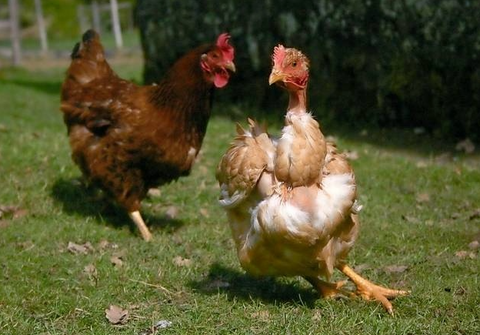🐓 10 Things You Need to Know Before Getting Chickens
So, you’re thinking about getting chickens? Congrats—you’re about to enter a world of fluffy feathers, fresh eggs, and way more poop than you ever imagined. Owning chickens is rewarding, hilarious, and sometimes a little messy. But before you bring those clucky cuties home, here are 10 things you should know!
1. Chickens Aren’t Just a Summer Fling
Backyard hens can live 5–8 years on average, and some even longer (the record is over 20!). Chickens are not a “fun weekend project”—they’re a commitment. So make sure you’re in it for the long haul.
2. Eggs Don’t Last Forever 🍳
Your hens will lay like champs for their first 2 years, but after that, egg production slows down. Some people keep their “retired” ladies as pets, while others make them dinner. Decide how you’ll handle this before you start your flock.
3. Winter = Egg Vacation ❄️
Most hens stop laying during the dark, cold months unless you add artificial light to the coop. Don’t panic—it’s totally normal. Use the downtime to enjoy your chickens’ company (and maybe stockpile eggs in autumn).
4. Feather Explosions Are Normal
One day your coop will look like it survived a pillow fight. Don’t freak out—it’s just molting season. Your chickens are trading in old feathers for warm, shiny new ones. Totally normal, totally messy.
5. Chickens Poop. A Lot. 💩
Each bird can produce about a cubic yard of compost per month. The upside? You’ll have the best garden soil on the block. The downside? Check your shoes before you walk inside.
6. You Probably Won’t Save Money
Hate to break it to you, but chicken keeping usually costs more than store-bought eggs. Feed, coops, fencing—it all adds up. But what you do get is fresher, tastier eggs, free fertilizer, and endless entertainment. Totally worth it.
7. Even When You Do Everything Right…
Chickens can be tough and fragile at the same time. Sometimes they get sick without warning. Sometimes they just keel over. It’s frustrating, but it’s part of chicken keeping. Don’t beat yourself up—you’re not alone.
8. Not Everything in Your Kitchen is Chicken-Safe 🚫🍫🥑
Chickens can’t eat everything we do. Avocados, raw potatoes, chocolate, and tomato plants are all toxic to them. Always double-check before sharing leftovers with your flock.
9. Chickens Will Change the Way You See Food
That first egg? Pure magic. You’ll take pictures, text your friends, maybe even throw a mini party. Suddenly, food isn’t just something you grab at the supermarket—it’s something you nurtured and cared for. It’s humbling, and honestly, life-changing.
10. You Will Fall in Love ❤️
Don’t say we didn’t warn you. Chickens are quirky, curious, and downright adorable. They’ll follow you around, chatter at you, and bring joy to your mornings. Before long, you’ll wonder how you ever lived without them.
🐥 The Bottom Line: Chickens are funny, feathery little companions who bring fresh eggs and big personalities to your backyard. They might not save you money, but they’ll enrich your life in a thousand other ways.




